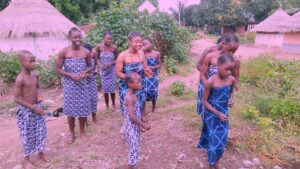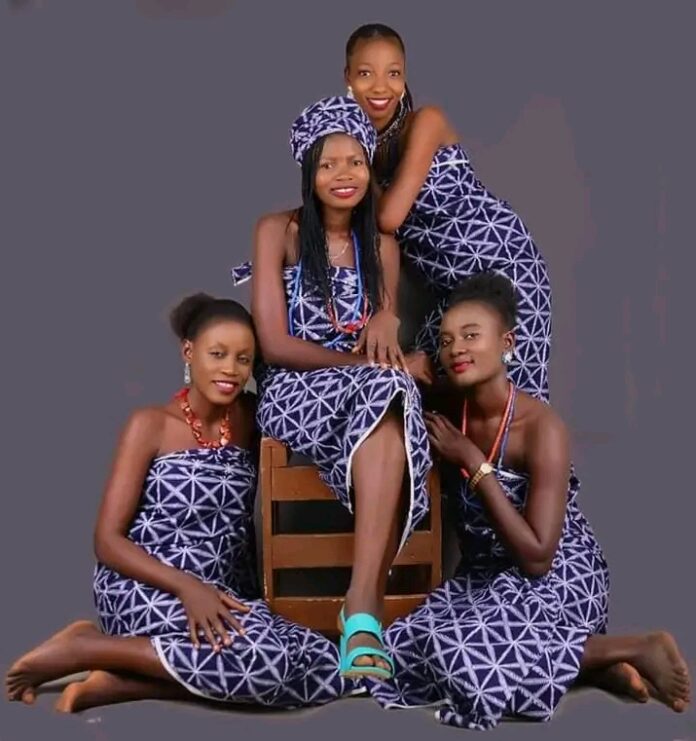The Jukun Tribe: Into the enduring traditions of the mighty Kwararafa Kingdom (Pictures)
Tucked between the banks of the Benue and Niger rivers and the undulating Savannahs of Nigeria’s Middle Belt, the Jukun people trace their ancestry to the once mighty Kwararafa Kingdom, a dominant Sudanic empire that stood strong from the 14th to 18th centuries.
History and Origin
Today, the Jukun reside predominantly in Taraba, Benue, Nasarawa, Adamawa, Plateau, and Gombe States, with spillovers into northwestern Cameroon.
The Jukun people believe they migrated from the Middle East, possibly from Yemen, passing through Kordofan, Mandara, and the Lake Chad Basin before settling along the Benue Valley. Researchers support this theory and link their journey to early interactions with the Kanuri, and eventual dispersal from the Kanem-Bornu Empire.
The Jukun kingdom fragmented over centuries due to internal power tussles and external invasions, especially the Fulani Jihad of the 19th century, leading to political dispersal and the formation of two major groups: the Jukun Wanu, riverine dwellers and fishermen, and the Jukun Wapa, the agrarian highlanders. Central to the Jukun political identity is Wukari, their cultural capital, where the Aku Uka, the spiritual and traditional ruler, still reigns.
READ ALSO: Funeral procession of late Aku Uka in Taraba (Video)
Cultures and Beliefs
Until the influx of Abrahamic Religions, the Jukun adhered to a deeply structured traditional religion, centred on ancestor worship, ritual cycles, and sacred kingship. The Aku Uka, once seen as a semi-divine priest-king, performed spiritual duties to maintain harmony between the living and the dead. Although modernity has swept in new religions, elements of the old faith still influence cultural practices.
Marriage customs also reflect communal values. The Jukun place low monetary demands on bride price, making marriage accessible. The man provides Abegya (betrothal money), Abeben (bride price), and Andu (handbag) based on his capability. Symbolically, he must also cultivate the land of his future in-laws, an agricultural gesture of loyalty and readiness.
Socio-Economy
Indeed, agriculture pulses at the heart of Jukun life. With rich soil and riverine access, they grow yam, maize, rice, cassava, guinea corn, and vegetables, while also producing mangoes and oranges. Livestock farming thrives, and their natural waterways support extensive fishing, especially among the Wanu subgroup.
Jukun women are also known for intricate cloth weaving and dyeing, continuing a centuries-old tradition. Their economy blends subsistence farming with trade, handicrafts, and river-based commerce. Extended, polygynous families dominate the social structure, reinforcing communal values and labour cooperation in both farming and festive activities.
READ ALSO: Guardians of Heritage: Glance at Bolawa tribe of Fika (Video)
Festivals and Attires
The Jukun cultural calendar is filled with colourful rituals and annual festivals rooted in spiritual beliefs and agricultural rhythms. These festivals are not mere celebrations; they are performances of history, sacrifice, and identity. The Aku Uka leads ancestral cults that hold sacrificial rites and masked dances believed to ensure community welfare.
The Jukuns are highly renowned for their symbolic wooden statues, representing ancestors, wives, and slaves. These figures emerge during funerals, agricultural festivals, and moments of communal danger, acting as spiritual intermediaries between the visible world and the ancestors.
Visually striking, the Jukun attire is usually a patchwork of deep blues and blacks, designed in local fabrics like Kadzwe, Ayin-po, Adire, and Baku. These garments are not only aesthetic, but also embody lineage and status. Shoulder masks, often adorned with red seeds, are also key features in ritual dances; echoes of artistic traditions shared with neighbouring groups like the Mumuye and Waja.
In the end, despite modern challenges including interethnic tensions with neighbouring groups and the impact of national instability, the Jukun people remain relentless. Their identity—shaped by kingdoms, rivers, rituals, and resilience—endures as a true testament to Nigeria’s layered and living history.
See pictures below:




Follow the Neptune Prime channel on WhatsApp:
Do you have breaking news, interview request, opinion, suggestion, or want your event covered? Email us at neptuneprime2233@gmail.com





